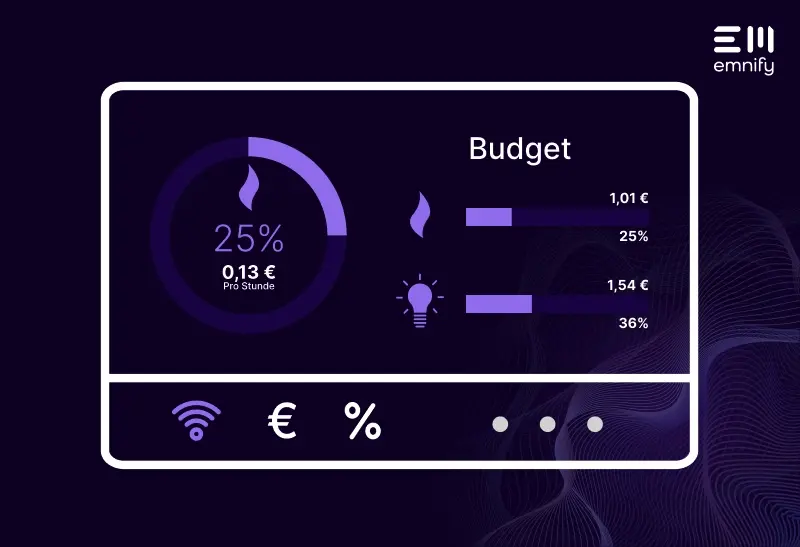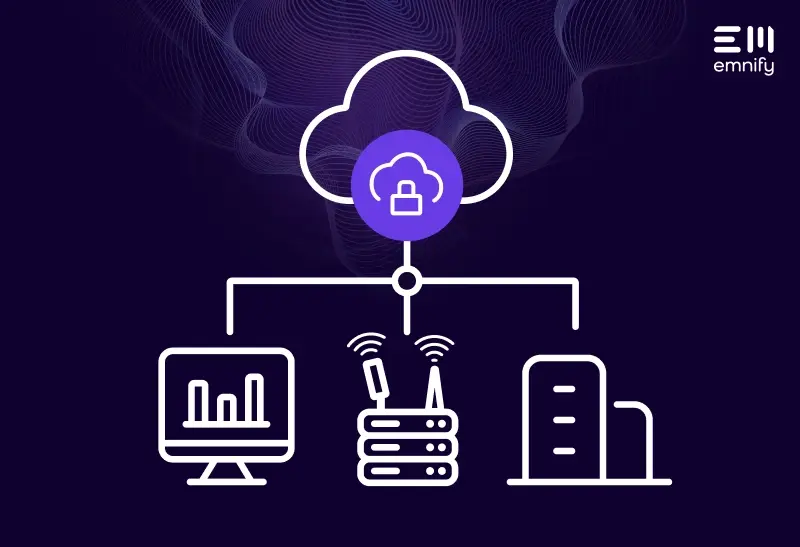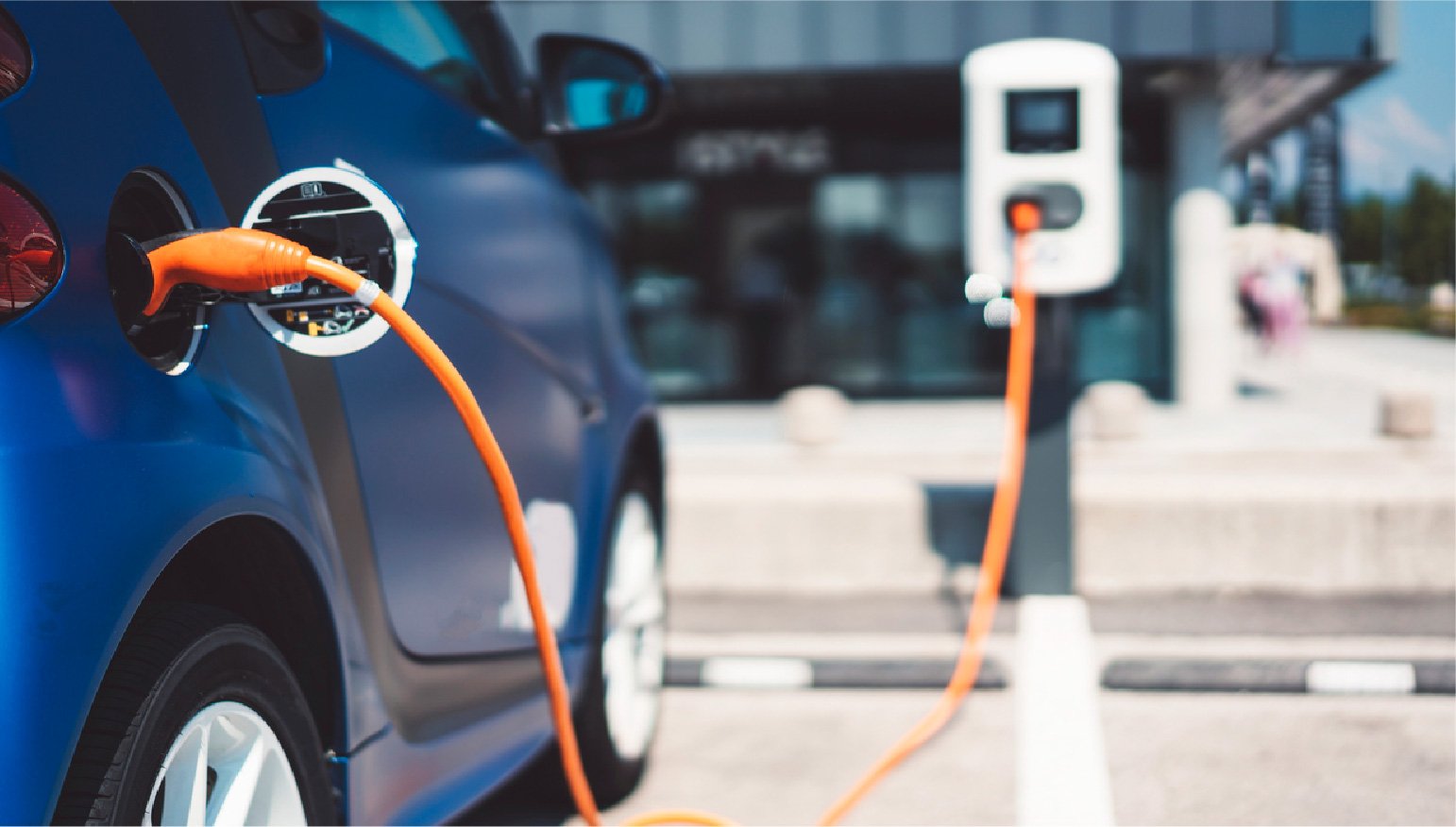

Quick definition: An energy smart meter is a digital device that measures and records energy consumption in real-time and communicates this data directly to the utility provider, eliminating the need for manual meter readings.
A quiet revolution is transforming the energy sector—the rise of smart meters. These devices are not just digital versions of traditional energy meters. They represent a move towards a smarter, more connected, and more efficient energy system. To truly appreciate this transformation, we must ask the fundamental question, "What is a smart meter, and how does it work?"
The difference between traditional meters and smart meters
Traditional energy meters, typically located on the premises, are mechanical devices that log the electricity consumption in your household for billing purposes. The data collection process for these devices necessitates a utility company representative to physically read and record the meter's information during each billing cycle.
In stark contrast, smart meters redefine this approach. These digital devices continuously measure and record energy consumption in real time and relay this data remotely to the utility provider. By eliminating the need for manual readings, smart meters facilitate more accurate and prompt billing. But the benefits extend beyond billing—smart meters offer real-time energy consumption monitoring and immediate reporting of power outages.
The prevalence of smart meters
As reported by the Institute for Electric Innovation, the deployment of smart meters is rapidly increasing. By the end of 2020, an estimated 107 million smart meters had been installed across the US, and this number continues to grow.
The integration of smart meters into the IoT ecosystem represents more than a fleeting trend. In the words of the Institute for Electric Innovation,
"Smart meters are the 'fundamental building block' for an evolving distribution grid."
This integration is a significant milestone in the journey towards the future of energy.
How do smart meters work?
So, how do smart meters work? The crux of a smart meter's operation lies in its capacity to communicate. Smart meters measure energy consumption like traditional meters. However, they also have a two-way communication system. This system allows them to send consumption data to the utility provider. It also allows them to receive instructions or updates from the provider.
How do smart meters communicate?
A variety of communication technologies, including cellular networks, power line communication (PLC), or radio frequency (RF) mesh networks, enable smart meters to communicate. These communication protocols facilitate the seamless integration of smart meters into the expansive IoT ecosystem.
Given that smart meters handle sensitive information, security is an understandable concern. Therefore, these devices are designed with multiple layers of security protocols, including encryption and strict access controls, to protect user data. However, they are not immune to threats, emphasizing the necessity of ongoing smart meter security enhancement.
Use cases of smart meters
Improved transparency and fair cost distribution in apartments
Multi-tenant dwellings, like apartment blocks, benefit from the real-time data provided by smart meters. In the past, tenants would divide costs annually, which usually resulted in energy expenses being distributed unfairly or incorrectly. Tenants were also left in the dark about their energy consumption until their bill arrived, making it challenging to manage and reduce their usage.
Smart meters have made it possible for tenants to manage their energy consumption and understand their usage patterns. This increased transparency makes fair distribution of energy costs possible as people can be charged for their actual consumption.
Demand response programs
One significant application of smart meters is their role in enabling demand response programs. These programs incentivize consumers to reduce their energy usage during peak times in exchange for cost savings on their energy bills.
Smart meters facilitate these initiatives by providing real-time data on energy usage, allowing utility providers to monitor and control energy demand more effectively. This not only aids in managing the energy grid more efficiently but also empowers consumers to make informed decisions about their energy usage, contributing to overall energy conservation.
Energy/Solar panels
A third application of smart meters lies in the context of renewable energy, particularly solar panels. As sustainable energy solutions gain traction, smart meters enhance the efficacy of solar energy systems by providing real-time data on both energy usage and solar power generation. This enables homeowners to maximize their solar power utilization, adjust consumption patterns, and potentially reduce their overall energy costs.
During peak production times, solar panels often generate excess energy which is fed back into the grid. Smart meters not only record this surplus but also communicate it to utility providers. This can result in homeowners receiving credits for the excess power their solar panels have produced, contributing to significant cost savings.
IoT SuperNetwork and smart metering offer
As a leading cellular IoT connectivity provider, we at emnify understand the immense opportunities within the IoT sector. Our cloud-native core network, the emnify SuperNetwork, delivers consistent, scalable, and reliable service for IoT manufacturers globally. When a user integrates a smart meter with an emnify IoT connectivity solution, users are able to unlock a host of opportunities in the energy sector.
The emnify SuperNetwork enables smart meters to communicate cellular data in real time. The data on energy consumption, measured by the smart meters, is instantly relayed to the utility providers, enabling them to adjust supply according to demand and reduce energy wastage.
Furthermore, in the context of renewable energy and solar panels, the SuperNetwork aids smart meters in managing solar energy production and consumption more effectively. This results in a more efficient use of solar power and, in many cases, can result in cost savings for the consumer.
In essence, the integration of smart meters with emnify's SuperNetwork is a game-changer in the energy sector, driving operational efficiency, improving customer service, and promoting sustainable energy practices.
As we consider the future of smart meter technology, it's important to recognize the significant impact of affordable and effective connectivity solutions. Low-cost, low-power wide area network (LPWAN) technologies like Narrowband IoT (NB-IoT) and LTE-M are becoming more important because of the sheer number of connected devices
The increase in use of LPWAN technologies in the smart meter industry highlights the the critical role of a reliable and versatile IoT connectivity solution, such as emnify's SuperNetwork. This IoT solution is designed to meet current and future demands of the market and can accommodate the swift expansion of IoT deployments.
Final thoughts
The advent of smart meters signals a transformative era in the energy sector. Their real-time data capture and communication capabilities are reinventing traditional energy management systems. Paired with the power of IoT and solutions like the emnify SuperNetwork, we are on the cusp of a more connected, efficient, and sustainable energy future.
To learn more about our smart metering solutions, visit our Smart Metering IoT Solution page. For more information about our eSIM technology, check out our emnify IoT eSIM page.
Get in touch with our IoT experts
Discover how emnify can help you grow your business and talk to one of our IoT consultants today!

With a career spanning over 18 years in storytelling and content creation, Bronwyn translates technical concepts and ideas into snackable and easy-to-digest content.


